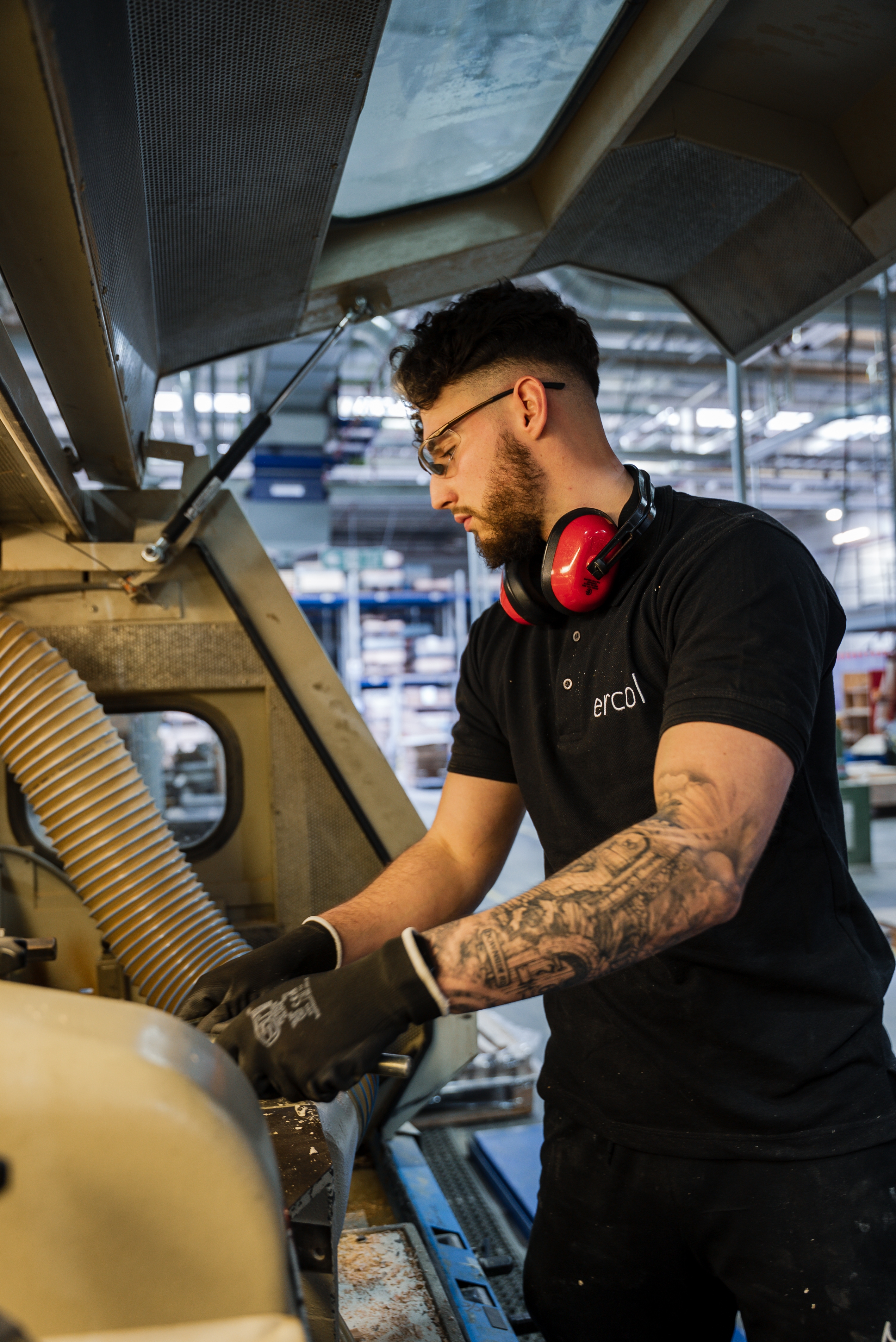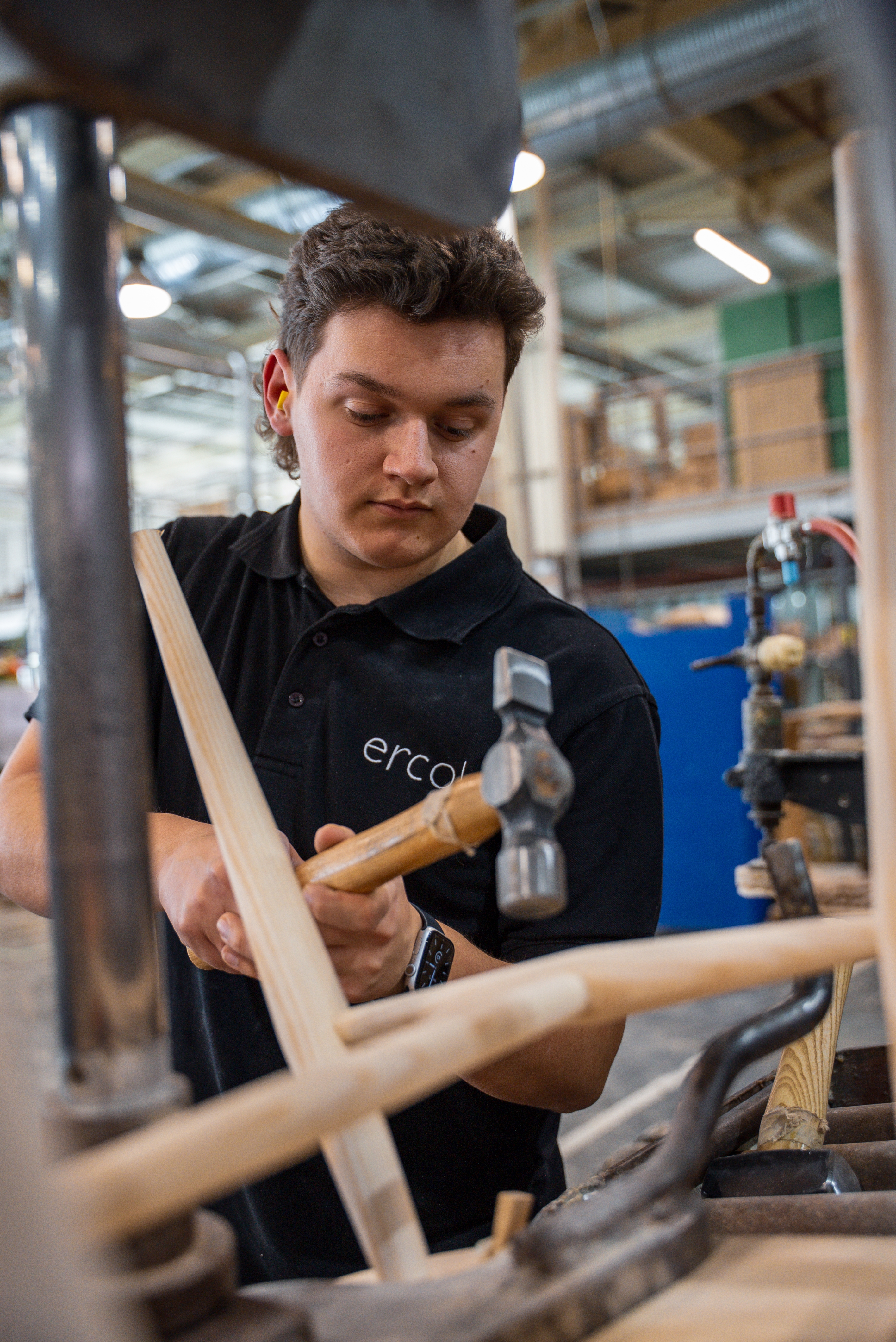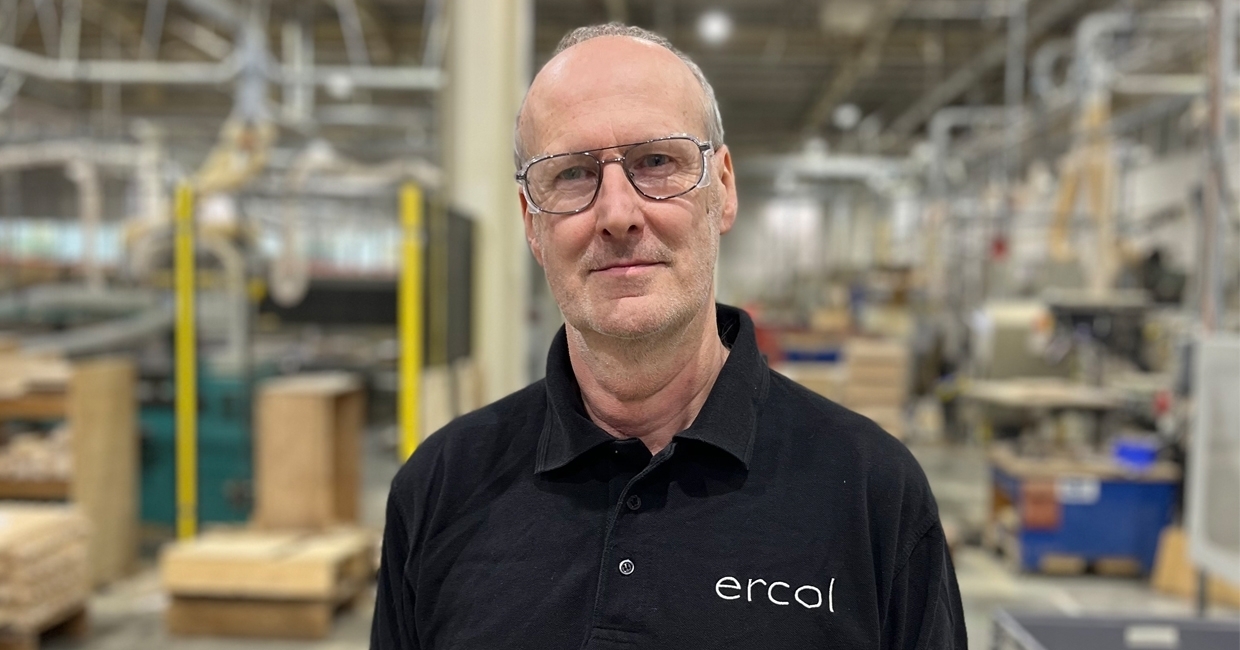With a legacy spanning over 100 years, ercol has long been synonymous with craftsmanship, quality, and innovation in British furniture manufacturing. Central to this enduring success is the company’s commitment to nurturing talent through a robust apprenticeship programme. In this article, Roy Graves, Technical Support Manager at ercol, shares how the company’s time-honoured values inform a forward-looking approach to training, mentorship, and workforce development, offering valuable insights for businesses across the sector.
How does ercol’s rich heritage inform your approach to training and apprenticeships?
For over a century, our greatest strength has been our highly skilled workforce, and we remain dedicated to supporting and investing in the next generation of craftsmen and women. They provide us with access to new talent and enable us to train staff with the skills we need to help the business thrive.
Our apprenticeship offer has changed a bit over the years. In fact, we re-launched it entirely in 2017 to ensure we were building the skills we will need in the future to support our ageing workforce. Partnering with our training providers has given us the opportunity to strengthen the quality of our in-house training.
The apprenticeship programme provided a solid framework, which we’ve used to further develop and refine our own training methods.
What types of apprenticeships do you currently offer?
We offer a variety of apprenticeships in conjunction with Activate Apprenticeships and The Engineering Training Trust. They’re typically two-year programmes that involve either in-house learning with regular mentoring sessions with the provider, or block release lessons at Rycotewood Furniture Centre – a renowned centre of excellence for training the furniture designers and makers of the future.
We currently offer apprenticeships in electrical, maintenance, machining, finishing and polishing, and assembly. Our ambition is to continue expanding the programme so we can offer apprenticeships across all areas of the business.
The apprenticeship scheme covers many different bases. For the apprentice, they have an opportunity to earn while they learn. For the business, we have a trainee who is also an additional team member who can help with all the production needs. We created a five-year plan in 2021, which allows for around four to five apprentices to be onboarded each year.

Could you walk us through what an apprentice’s journey might look like at ercol?
Every apprentice receives thorough training from day one. This supports their career development and contributes to our strong record of long-term employment across the business.
When they join, each new apprentice is paired with a mentor – a more experienced member of staff who’s there to guide them through their journey at ercol and ensure they get the most out of the programme.
Each week, our apprentices are given a day when they can come to the office to complete their ‘off-the-job’ hours. This includes any work set by the training provider as well as, sometimes, practical work which they can carry out in the factory; we have a dedicated area in the factory set aside for these activities.
During the rest of the week, the apprentices carry out normal production work under the supervision of those working around them. This gives them an opportunity to learn in a real-time environment from the skilled people working alongside them.
One success story is Brian Snelling, our production manager, who joined us in 1987 with little experience in manufacturing after having worked several part-time jobs previously. Keen for a change of scenery and with a passion for learning, Brian signed up for a three-year apprenticeship in polishing, followed by a two-year advanced polishing course. Now, 37 years later, apprenticeships have become a family tradition in the Snelling household. His wife, Kerry, completed a sewing apprenticeship with us in 1989, and all three of their children have also followed suit, completing apprenticeships in childcare and electrics. We’re proud to support Brian’s journey at ercol; his story continues to inspire people at every stage of their careers.
What would you say are the biggest benefits to your business from investing in apprentices?
Apprentices bring fresh ideas and energy that push us to think differently and try new approaches. They play a key role in getting the job done efficiently and boosting in-house production.
Their enthusiasm has a positive impact on the wider team, making seasoned staff more motivated to take on new responsibilities and tackle new challenges.
Mentoring is one of the most rewarding aspects of hiring apprentices. Staff enjoy helping others build careers in an industry they’re passionate about, while also gaining valuable leadership and project management skills.
Overall, mentoring challenges our staff to remain engaged and adaptable, finding creative ways to teach and support different learning styles. This sparks innovative thinking, strengthens communication and fosters a more connected, collaborative team, nurturing the next generation of talent, benefiting both the workforce and the business as a whole.

What advice would you give to other employers in the sector who are thinking about starting an apprenticeship programme?
Hiring apprentices can feel daunting, and finding the right programme takes time. Thankfully, there are plenty of resources to help. If you’re not sure where to start, I’d highly encourage you to visit the Skills for Life website by the Department for Education. It maps out all the different options available to you, providing the perfect first step in finding out more about the training and employment schemes on offer.
Choosing the right apprenticeship provider is key. They can help run the programme smoothly, support recruitment and screen candidates, and tailor training to suit your business’s needs.
I’d also recommend attending local careers events, often run by councils or schools. They’re great for networking with other businesses, getting advice, and meeting potential apprentices. Plus, building relationships with local schools also helps you find what works best for your business and team.
What support or resources have you found most helpful in developing your programme?
We have received a lot of help with setting up our apprenticeship programme. The main help has come from our training providers at Rycotewood, and especially the Engineering Training Trust. We also received help from the Buckinghamshire Business First group, who gave us some fantastic advice when we were struggling at the beginning. This gave us the push to be more proactive in our recruitment and engagement.
We now regularly attend local schools’ careers events to promote ercol, the furniture industry, engineering and apprenticeships.
How does investing in apprenticeships contribute to the future of the industry?
The manufacturing industry is facing a significant skills gap, and I believe hiring apprentices is one of the best ways to close it. Bringing in young talent and career changers helps build a stronger, more adaptable team while passing down knowledge from experienced colleagues, helping to secure the future of our workforce and the industry as a whole.
We partner with leading training providers to continuously strengthen our programme, ensuring it delivers real value for both the business and the apprentices. This results in confident, capable individuals ready to thrive, whether with us or beyond.
The furniture industry is quite close-knit, and we’re proud to support in building the next generation of craftsmen and women.









